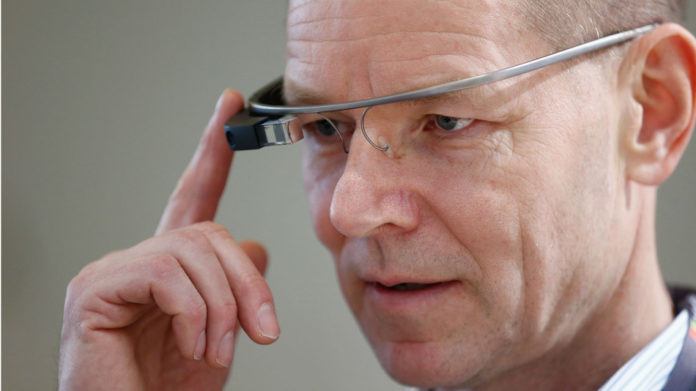Google Glass will be MIA at CES, but smart glasses will step up

As I prepared to cover this year’s International CES in Las Vegas, I packed a healthily stocked gear bag, complete with two laptops, a DSLR camera, four smartphones, a Wi-Fi hotspot, a smartwatch, cables galore and multiple spare batteries.
One thing I didn’t pack — although I strongly considered it — was Google Glass. I’ve been a Glass Explorer since the connected headset came out in spring 2013, although I haven’t worn it much lately. I still occasionally find it useful to capture fleeting moments with my family, but I’ve more or less stopped wearing it.
Why didn’t I take it to the show? Many reasons, but mainly because at last year’s CES, I found its predicted usefulness overrated. I used it to capture an hour-long booth tour, but the resulting footage was too unwieldy and boring to actually use. Glass let me capture and share photos very quickly, but it was next to impossible to add comments or hashtags to them. And I probably spent more time engaging people who wanted to talk about Glass than actually using it.
But if I’m being honest, I was also self-conscious about how I would look wearing it. Glass is ubernerdy to begin with, but it’s apparent that the device has fallen out of favor among even the tech crowd. Glass is so dorky that even dorks make fun of it, and I’d really rather just… not.
I suspect I’m not alone. There will probably still be a few people (including one or two tech reporters) with Glass at the show, but I’d be surprised if there are anywhere near as many “Glassholes” as last year.
I’m not saying all this to pile on Glass, which has had a really rough time in 2014. Yes, Glass may have shown the world what we don’t want in smart glasses, but it’s also shown the promise of technology.
Seeing the consumer market
There are companies stepping up at CES 2015 to deliver on that promise. One of them is Osterhout Design Group (ODG); the company is generating a decent amount of hype around its planned unveiling of a pair of lightweight consumer smart glasses.
ODG has some credibility, here, since its new model is based on the company’s R-6 glasses, which are already in use in enterprise and government agencies. The glasses incorporate impressive mobile tech: They’re powered by a Qualcomm Snapdragon 805 chip (the same chip in the Samsung Galaxy Note 4), and run full Android. They also make it look like a huge HDTV is floating in front of your face.
It doesn’t hurt that the glasses are modeled after Wayfarer sunglasses. At 125 grams, they’re heavier than Glass (which clocks in at 42g), but the symmetrical design at least gets it in the door of the consumer market. Weird prism-y thing growing out of one side? Not so much.
Longtime smart-glasses manufacturer Vuzix will also be at CES, and the company promises to show off a new lightweight version of its smart glasses, which has potential as a consumer device. In addition, Epson, maker of the Moverio smart glasses for enterprise, will show off new consumer apps — especially games — for the wearable.
This isn’t to say that smart glasses will be a major trend at CES 2015. However, the category will have more of a presence than in previous years, and connected headsets have progressed a lot, thanks to Glass — even if interest in that particular wearable has flamed out.
Still, it’s not lost on me that the companies that will be showing off smart glasses primarily target them at enterprise, with the so-called consumer versions and apps more demonstrative of the same ideas in a lightweight package, rather than genuine attempts at marketable, successful products.
For now, and probably the next few years, smart glasses will remain primarily tools for businesses. Some consumers will benefit from them, though, as long as they can tolerate being called “nerd” once in a while.
And that’s reason to hope. After all, the same was true about smartphones, and look where we are now.
Have something to add to this story? Share it in the comments.
